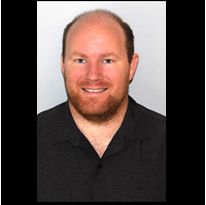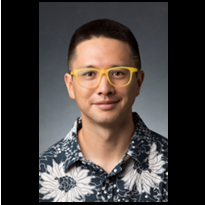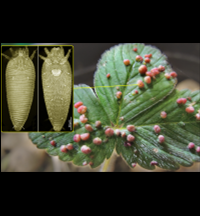News Articles for 2022

Welcome to the Department Assistant Professor Jimmy Dooley
2022-10-04
Dr. Jimmy Dooley joined our faculty in October, 2022.

Welcome to the Department Assistant Professor Dylan Wainwright
2022-10-04
Dr. Wainwright joined our faculty in August 2022
Prof. Gelvin attends NSF PI's meeting
2022-09-21
September 8-9, 2022. Professor Gelvin attended the NSF Plant Genome Research Program PI’s meeting at NSF headquarters, Arlington, VA. He presented a poster entitled “TRTech-PGR: Ensifer-mediated Transformation as an Alternative to Agrobacterium-mediated Transformation of Model Plants and Crops” and consulted with colleagues.

RESEARCH ARTICLE FORENSICS LEAD TO FINDS OF MISCONDUCT
2022-09-07
In a major news article, Nature magazine describes how an investigation prompted by "data sleuth" David Sanders and conducted by the Ohio State University has led to findings of research misconduct against two researchers.

Purdue researchers are to start a project in collaboration with the United States Department of Agriculture (USDA), Plant Protection and Quarantine, Science and Technology Identification Technology Program (ITP). The goal of this two-year project is to develop an easy-to-use online tool to detect and identify mite pests of agricultural crops for non-experts.
Cryo-EM structures of prion protein filaments from Gerstmann–Sträussler–Scheinker disease
2022-07-15
Prion protein (PrP) aggregation and formation of PrP amyloid (APrP) are central events in the pathogenesis of prion diseases. In the dominantly inherited prion protein amyloidosis known as Gerstmann–Sträussler–Scheinker (GSS) disease, plaques made of PrP amyloid are present throughout the brain. The c.593t > c mutation in the prion protein gene (PRNP) results in a phenylalanine to serine amino acid substitution at PrP residue 198 (F198S) and causes the most severe amyloidosis among GSS variants.

Scientists must inform the public – but not by claiming false certainty
2022-05-17
Journalists and fact-checkers must be reminded that scientific concepts can be hard to render in language that is both simple and true. From the beginning of the Covid-19 pandemic, my expertise on emerging viruses has been sought by the media. Sometimes I will be quoted in an article, but I often avoid taking sides on issues that I believe are unresolved, so my statements don’t always make good copy. Still, I frequently recognize my input in the general background statements made by journalists. To paraphrase John Stuart Mill’s inaugural rectorial address to the University of St Andrews, “bad articles need nothing more to compass their ends than that good men should look on and do nothing”.

Researchers have been working to find a cause and cure for Tourette syndrome since the neurological disorder was first documented in 1885. Purdue University’s progress in that work in recent years is now being rewarded with a $2.6 million grant from the National Institute of Mental Health for further TS research. Peristera Paschou, professor of biological sciences and associate dean for graduate education and strategic initiatives for the College of Science, is the principal investigator for the new grant. She already is leading several worldwide TS research collaborations and is supported by the National Science Foundation, National Institutes of Health and the National Institute for Neurological Disorders and Stroke. In 2017, she was a senior co-author on a groundbreaking international study that became the first in the world to identify risk genes for TS. She then led a large-scale study in 2021 that shed light on the common genetic basis of TS and related neurodevelopmental disorders.

Epigenetic regulator explains why some lung cancer patients become resistant to common therapeutics
2022-05-16
Doctors typically treat people with nonsmall cell lung cancer, a prevalent and typically incurable type of cancer that makes up 80%-85% of lung cancers, with tyrosine kinase inhibitors, specifically epidermal growth factor receptor inhibitors. About 15%-20% of these patients will become resistant to these standard treatments, resulting in their eventual death. Researchers understand part of the reason for this: The cells develop a mutation that leads to resistance. But about half of those resistant patients remain unexplained. Andrea Kasinski, a cellular biologist, and her lab have discovered that some of the explanation is epigenetic.
Did OMICRON variant of SARS-COV-2 come from an animal?
2022-03-01
A PODCAST INTERVIEW ABOUT THE OMICRON VARIANT OF SARS-COV-2. HOW DOES IT DIFFER FROM OTHER VARIANTS AND WHERE DID IT ORIGINATE?

ADDRESSING PLAGIARISM
2022-02-07
In his ongoing efforts to address academic misconduct, Professor Sanders describes his experience trying to get appropriate action taken about a published article displaying extensive plagiarism.

Academics’ unscientific assertions on Covid are exacerbating division
2022-01-10
The pandemic has demonstrated that there are broad deficiencies in quantitative reasoning skills even within the academy, says David Sanders. As if the direct effects of Covid-19 on public health were not bad enough, the pandemic has also been exploited as an opportunity to advance many socially corrosive agendas. These include xenophobia, science rejection, conspiracy-theory propagation, cultism, antidemocratic agitation, antivaccination propagandising and generalised fearmongering.